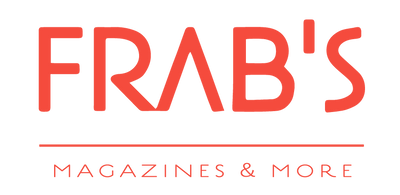Frab's Advent Calendar: # 5 and # 6 Inque
Magazines, independent and niche ones, but also "well done" commercial ones, essentially have two purposes: to tell and immortalize in their pages the moment in which they are immersed, but also to dictate trends and try to anticipate the times. They are, in this sense, both descriptive and predictive and I believe that the reason why I could never do without them is exactly that.
You understand well that, when a magazine with the premises of Inque appears on the indiemag scene, resisting the temptation to have it in your collection is almost impossible.
Inque is the new magazine by Dan Creowe, former editor of AnOther Magazine and founder of Port and Avaunt, e Matt Willey, partner of Pentagram Studio. It is a magazine / book with a very large format, an annual that has a beginning and also an end because the numbers scheduled are only ten, which makes it even more tempting for collectors. Inque promises to immortalize in its pages a decade that, according to its editor in chief, will define an era and does so through literature, poetry, reportage and art.
The stated purpose is to create a completely free adv magazine to love and collect, a free space, both from a graphic and content point of view, from the "cages" imposed by publishers and tables: "After years of creating magazines (albeit incredibly fun), the constant and random distraction of advertising and all the noise that comes with it has worn us out, we wanted to see what our ideal magazine would look like, without the ads.", declared Dan Creowe in an interview with Creative Boom. And even if we at Frab's know a lot of advertising-independent magazines, we must admit that Inque stands out from the others for the very high quality of its pens, as well as for the decision. to make only 10 issues.
Among its pages we find not only high-sounding names, including Tom Waits, Ben Okri, Joyce Carol Oates, but Inque even manages to make the dead speak in the series Dead Interview that Margaret Atwood makes to George Orwell in a sometimes surreal conversation between two giants of literature (and dystopia) that will continue for 10 years.
Also, over the course of the ten issues, author Jonathan Lethem will write a new novel.


Between literature, fiction and poems, among the pages of Inque we also find avant-garde works of art and criticism: the master ceramist, artist and author Edmund de Waal will write about an extraordinary ceramic work in all ten issues and the historian of art Andrew Graham-Dixon captivates us with his column on how art has changed since 1500 and again now post-Covid.
The photographic reportages could not be missing, such as the one by Pietro Masturzo who shows us the (non) life on the Gaza Strip in a series of black and white shots that capture all the pain of an often ignored reality, or that of Shawn Pridgen which will document the changes in New York over the decade starting with the Brookin neighborhood.
Inque, you find WHO, it is not just a niche magazine, it is a document for posterity over a decade that will define not only an era, but the entire future of our planet if we are unable to find solutions to the climate crisis. And if it is true that a magazine certainly cannot solve the problem, it is also true that in extreme situations art can help us understand things and see the new with greater clarity.

